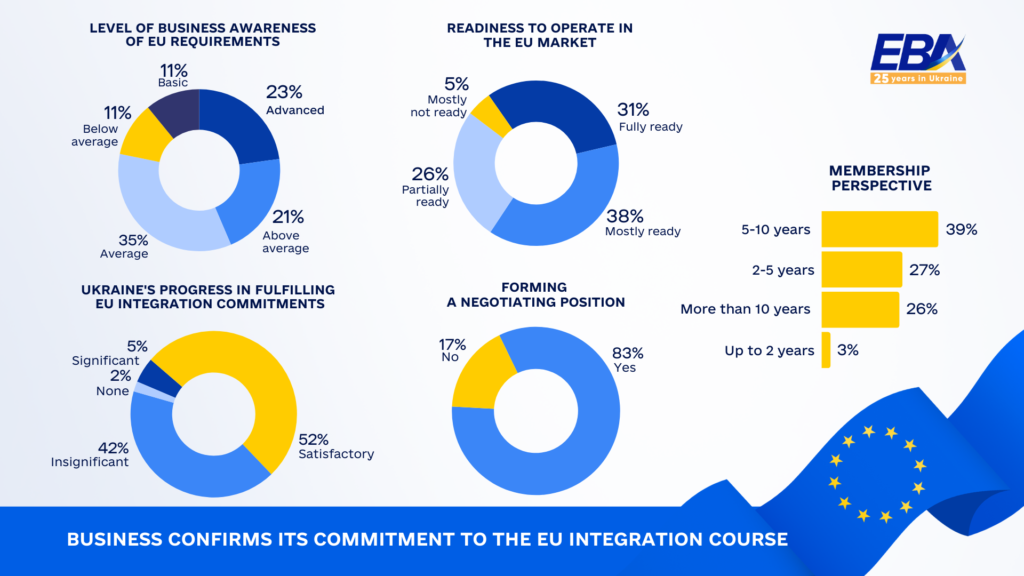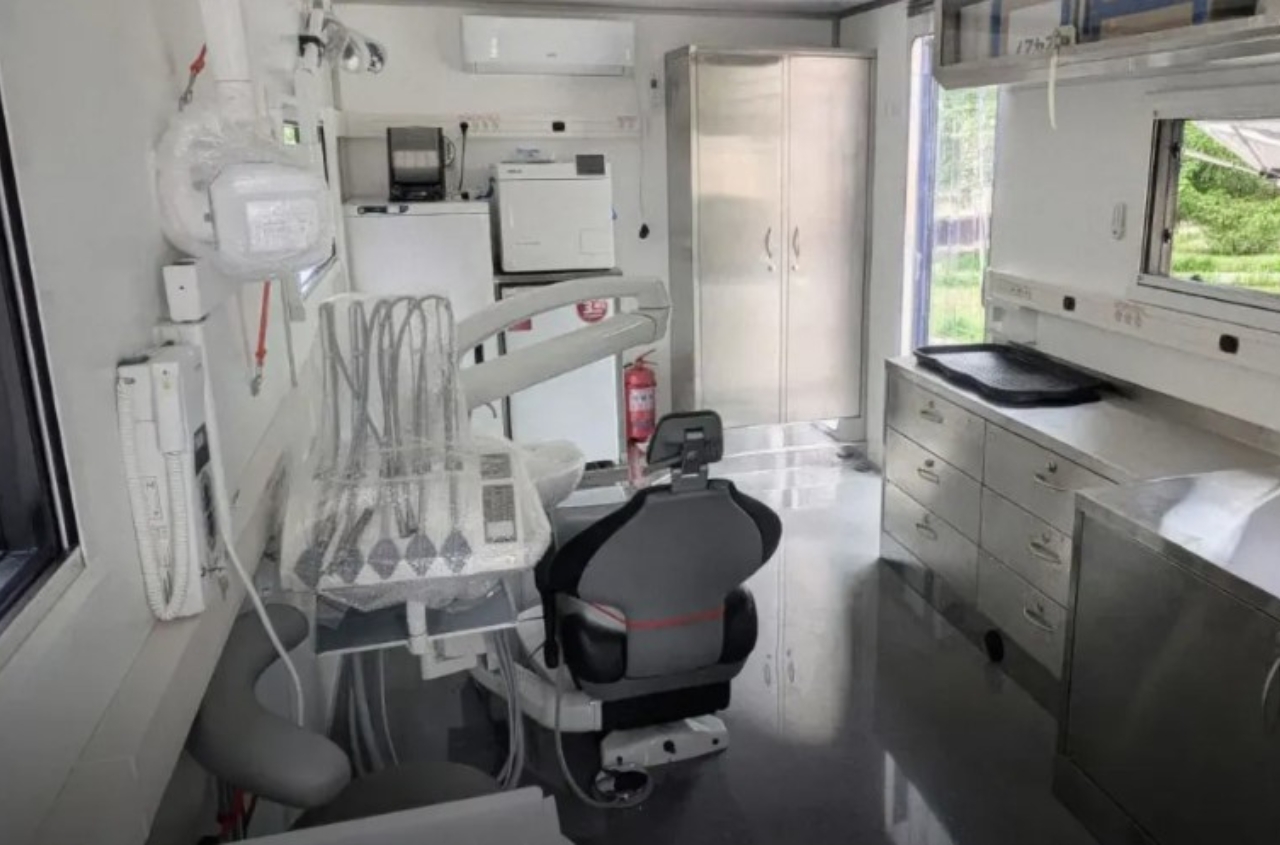71% of member companies of the European Business Association (EBA) view the impact of Ukraine's Euro-integration movement positively, reported EBA Deputy Director Svitlana Mykhailivska.
“Twenty-one percent assess this impact as neutral and 8% as negative. Interestingly, 95% are ready to operate in the EU market, with 31% fully ready, according to their own assessment, 38% predominantly ready, and 26% partially ready,” she said during a presentation of the study at the "Ukraine on the Path to the EU" conference on Thursday.
According to information on the EBA website, 83% of businesses are willing to participate in shaping Ukraine's negotiating position regarding EU membership.
Regarding the overall progress in fulfilling Ukraine's Euro-integration obligations, 52% of respondents believe it is satisfactory, while 5% consider it significant. Meanwhile, the remaining 42% assess Ukraine's Euro-integration efforts as insignificant, and 2% believe there has been no progress.

When discussing specific areas, the participants see the greatest progress in the fields of digital transformation and media (4 out of 5 points), transport policy (3.07 points), and agriculture and rural development (3.05 points).
“However, our progress regarding judicial authority and fundamental rights (1.71), justice, freedom, and security (1.76) is rated the lowest, which again highlights the need to focus on fundamental reforms that are prerequisites for any changes, transformations, and Euro-integration rights,” emphasized Mykhailivska.
According to the survey participants, the best dialogue on Euro-integration issues between the business sector and government bodies is with the Cabinet of Ministers (2.92 points), followed by other central government bodies (2.81), the Verkhovna Rada (2.53 points), and local authorities (2.46).
The business community believes that low institutional capacity (78%) is hindering Ukraine's faster fulfillment of Euro-integration obligations, particularly due to a lack of resources and professionals, insufficient expertise within government bodies (71%), the public, and businesses, and a lack of political will (62%).
Additionally, 35% of respondents reported a lack of access to financial support tools from EU funds, and 29% consider the information and technical support from the EU to be insufficient.
The survey was conducted from June 25 to August 22, 2024, among member companies of the European Business Association. Among the surveyed companies, 59% supply goods or services to the EU market, 58% import goods or services from the EU market, and 8% plan to enter the market.





















